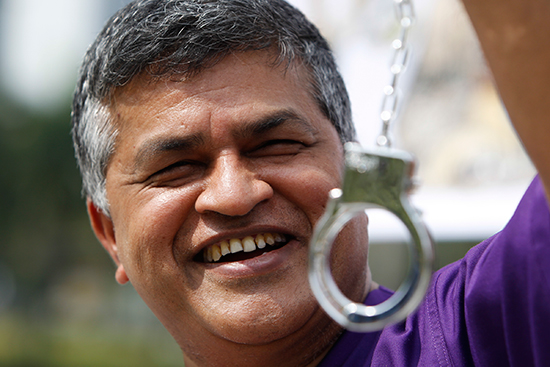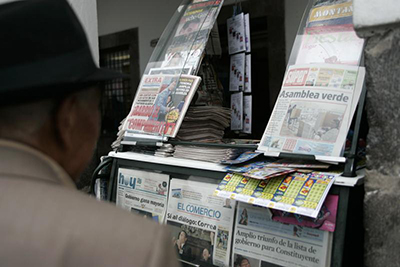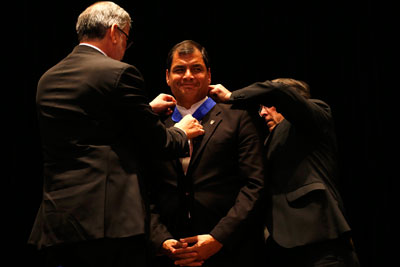Ecuadoran daily fined for publishing unsatisfactory government rebuttal
Bogotá, June 16, 2015–Ecuador’s state media oversight commission on Saturday fined the independent daily El Universo about US$350,000, accusing the paper of unsatisfactorily publishing a government rebuttal to a story, according to news reports.

Drawing the line: Cartoonists under threat
On January 7, two gunmen burst into the offices of French satirical magazine Charlie Hebdo, killing eight journalists and bringing into focus the risks cartoonists face. But with the ability of their work to transcend borders and languages, and to simplify complex political situations, the threats faced by cartoonists around the world—who are being imprisoned,…
Ecuador issues sanctions for cartoon mocking congressman
On February 13, 2015, Ecuador’s media oversight commission, the Superintendency of Information and Communication (SUPERCOM), ordered the Guayaquil-based daily El Universo to publish an apology in connection with a cartoon drawn by Xavier Bonilla, a cartoonist known by his penname Bonil, which was published on August 5, 2014, according to news reports.

How Ecuador’s plans to make communications a public service is threat to free press
Attempts to amend Ecuador’s constitution to categorize communications as a “public service” has sparked a fierce debate, with one critic drawing comparisons to the way dictators such as Stalin and Hitler used the press as a propaganda tool, and supporters of President Rafael Correa’s government arguing that the proposed reforms will make journalism more accountable…
Life on the run in Amazon jungle for journalist charged with defaming president
For Ecuadoran journalist and political activist Fernando Villavicencio, life on the lam has meant wading through jungle rivers to avoid police checkpoints, dining on crocodile and monkey meat, and penning his latest book from a series of safe houses.
Ecuador court paves way for media regulation under constitution
Bogotá, November 5, 2014–The Committee to Protect Journalists is alarmed by a decision by Ecuador’s highest court that has paved the way for a constitutional amendment that would categorize the news media as a “public service” subject to government regulation.
Pressured by government, Ecuadoran cartoonist is forced to adjust
Called to testify before a government media oversight commission, editorial cartoonist Xavier Bonilla–known by his penname Bonil–showed up with a pair of four-foot-long mock pencils. But rather than having a small eraser on the tip, one of Bonil’s giant pencils was nearly all eraser.
